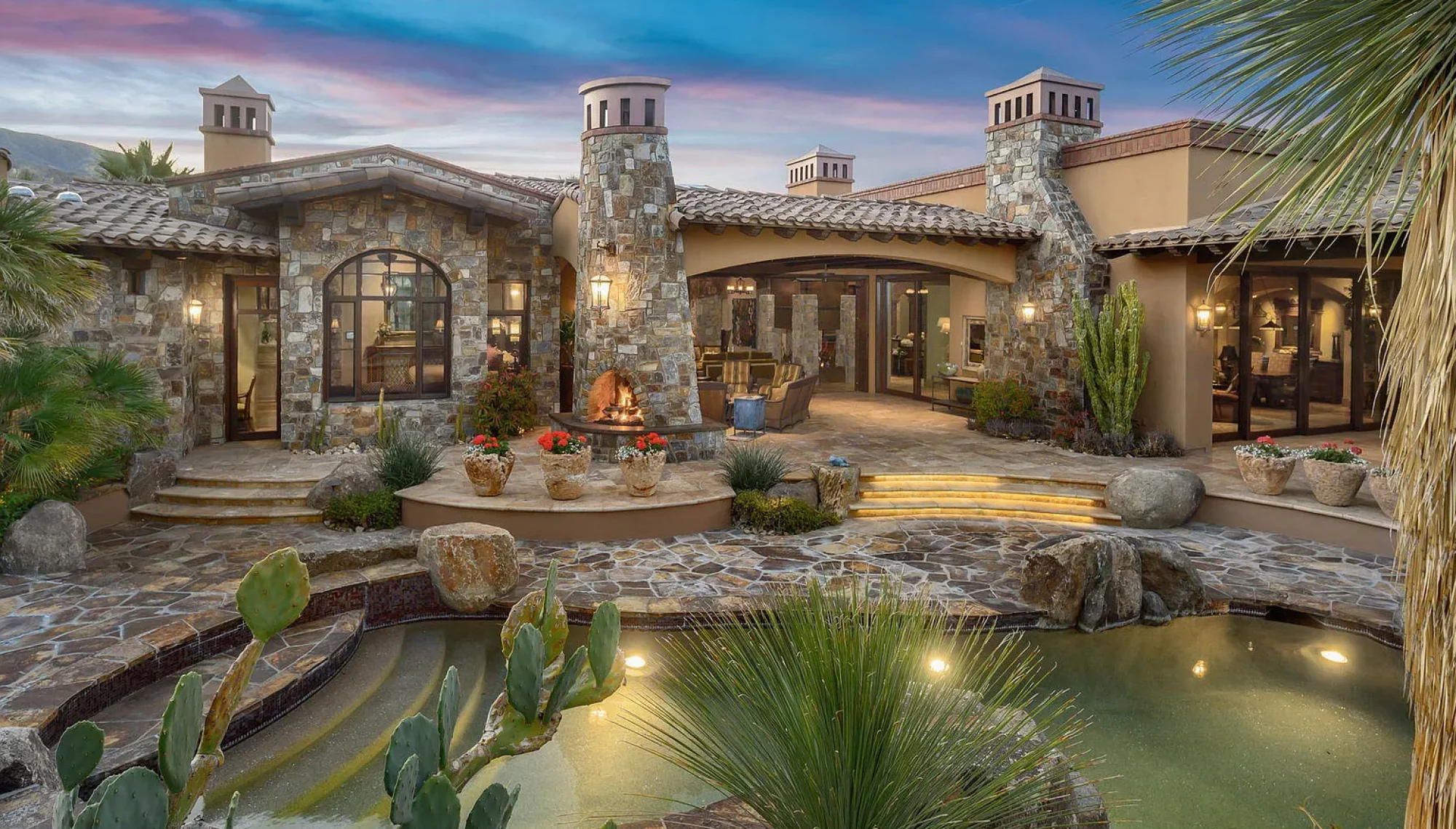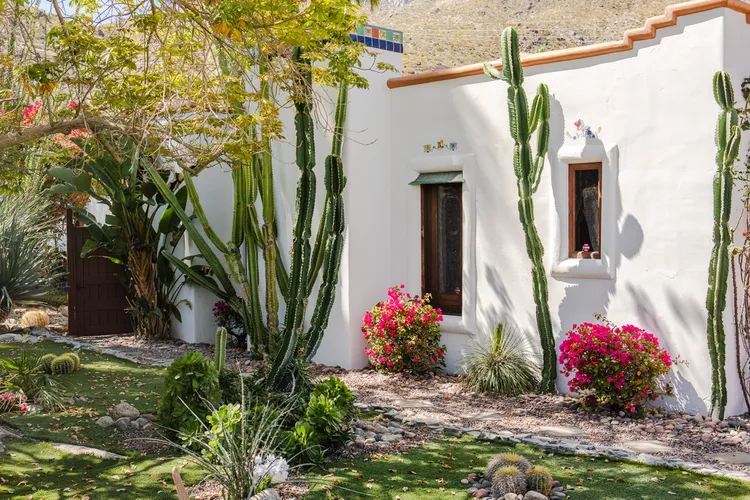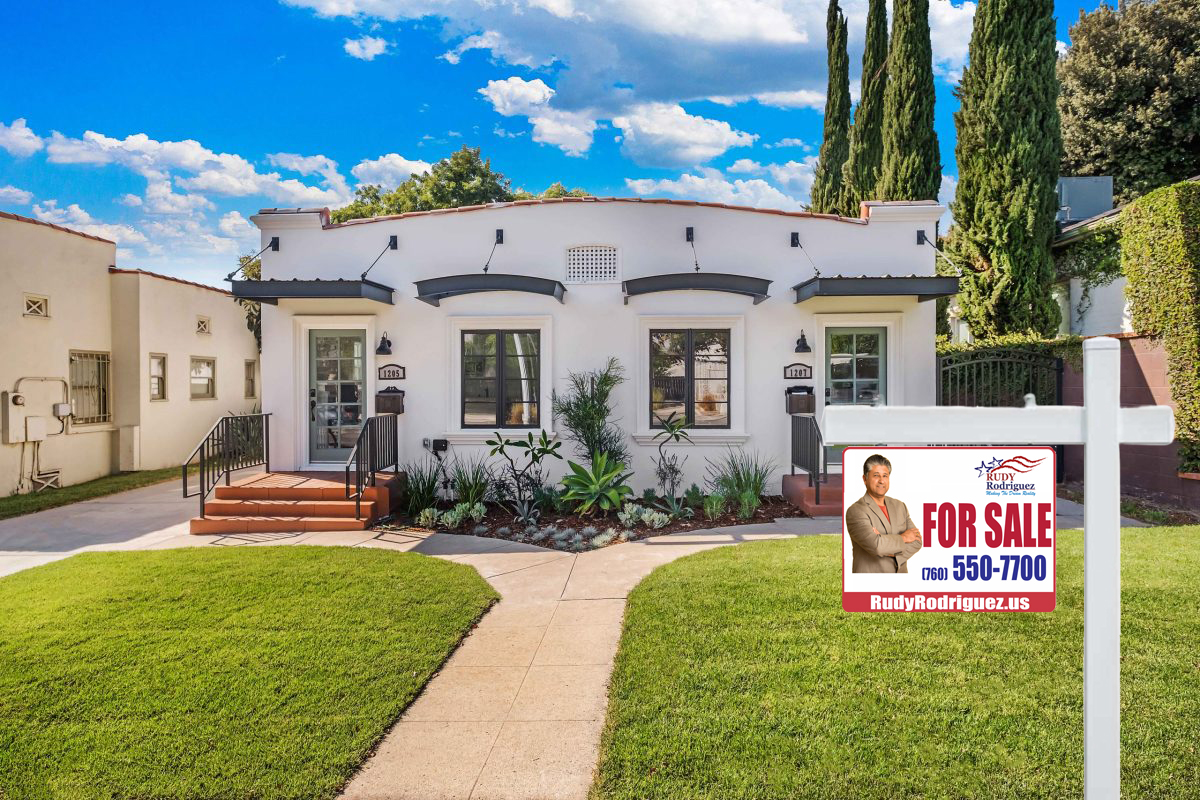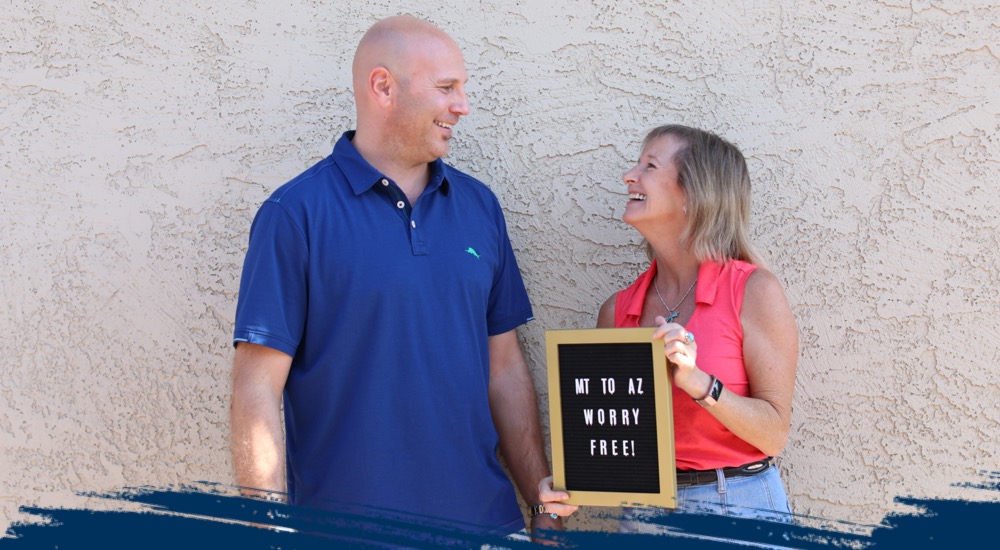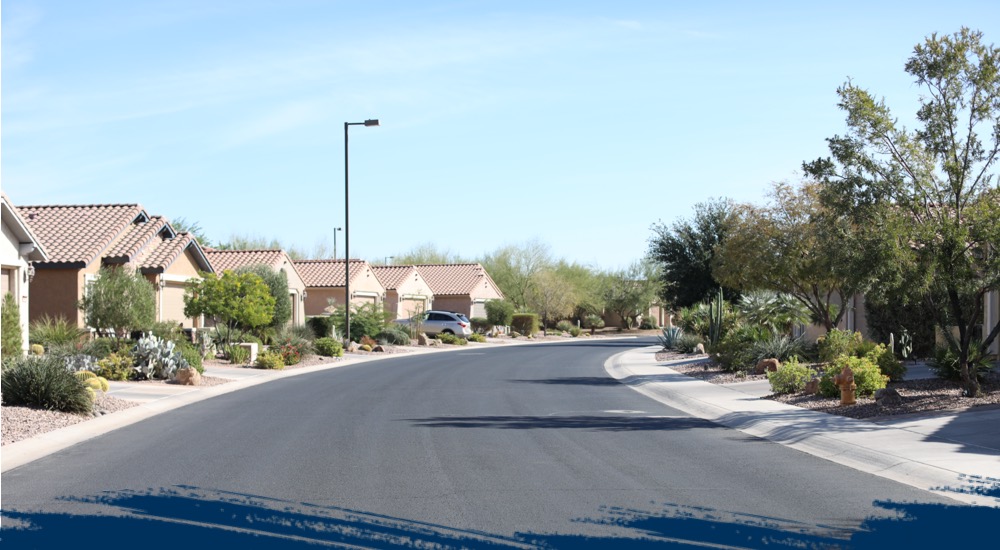Desert landscapes are often stunning to behold: their unique coloration and native flora create a visual experience unique to their climate. People who live in desert locations often describe the serene beauty of their surroundings. And many desert dwellers are also avid gardeners! But the desert landscape does present some special gardening challenges. We’ve gathered some ideas to help you brainstorm some design projects for your desert landscape.
Desert Landscaping Considerations
Desert gardening may have some special considerations, but the basics still apply. You need to know your hardiness zones, get to know your soil, and spend some time studying where the light falls and where winds are strongest. The desert is also known for extreme temperatures: very hot during the day but chilly once the sun goes down. Consider ways to comfortably enjoy your space at different times of the day or evening (a shade pergola for sunny days, or a firepit for colder nights, for example). Getting the lay of the land in this way will help you choose the best plants and features for your desert garden.
Desert Palettes
:max_bytes(150000):strip_icc()/beartrappalette-23e19c7f2c034a4ba35b6bdd523646be.jpg)
Desert gardens may not have the lush greens of cottage or woodland gardens, but they have intriguing color palettes unique to their climate. Desert sunrise and sunset light illuminates a garden with gorgeous muted colors. There are plenty of ways to integrate bright or subtle colors. Explore the many different colors of succulents available, and be sure to consider the colors of stones and containers in your designs. The classic desert landscape palette has earthy colors ranging from warm terra cotta and sandy tones, to cool blues, grays, greens and purples found in succulents, cacti and desert wildflowers. You can add bright touches of yellow or red to draw the eye, perhaps cobalt-blue glazed pots for a vivid spot of color.
Cacti vs Succulents

Most people think of cacti and succulents as the plants most commonly found in desert climates. A cactus is a succulent, but a succulent is not necessarily a cactus. Basically, a succulent is a plant that can store water in its stems and leaves, and can therefore survive a long time without water. Cacti also store water but tend to be identifiable by the “hairs” growing from their areoles (cushiony growths), and they do not grow leaves. Sometimes these hairs growing on cacti are sharp! Cacti also may produce flowers from the areoles. Cacti come in a wide variety of sizes and shapes.
Drought-Tolerant Flowering Perennials

There are many drought-tolerant plants that do well in desert gardens. These include Russian sage, sedums, agastache, fountain grass, Mediterranean herbs like rosemary and lavender, and many salvias.
Create Containers
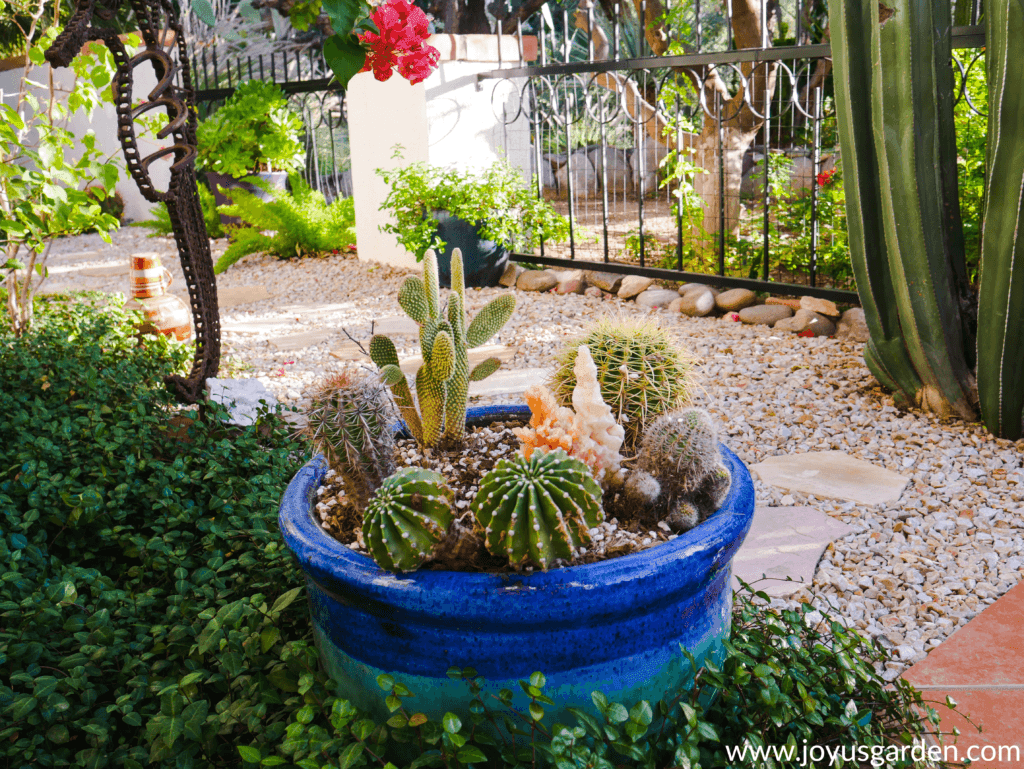
If you have very sandy or dry or rocky desert soil, you may decide to forgo traditional gardening for container gardening. This can be an excellent choice for desert landscaping, and gives you a great deal of flexibility for creative designs. Terra cotta pots have warm tones that go well with the greens, grays and blues of succulents for a natural look; glazed ceramic pots provide more color possibilities and conserve water better than unglazed ones. Metal pots may hold too much heat in desert sun, or get too cold at night, so clay pots are recommended for keeping soil at a more consistent temperature. Water container plants in the late afternoon for maximum vitality and to conserve water.
Dry Stream Beds
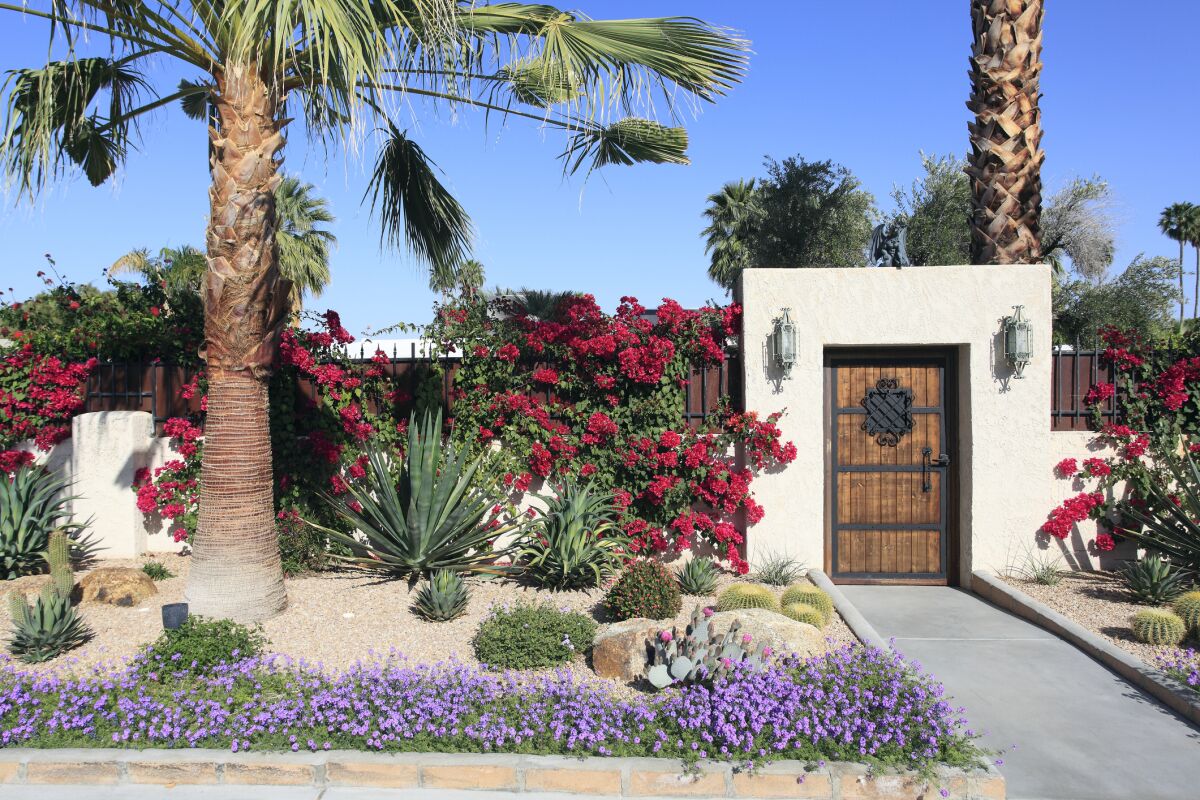
Dry stream beds are not only an attractive feature, but they help prevent run off and help conserve water. They can be dug into the landscape but they can also work well for naturally occurring slopes or gullies.
Agaves

These fleshy blue leaved succulents make a dramatic statement with their large size and chunky leaves. Their pale blue and silvery hues are a classic choice for the desert garden. They’re extremely heat and drought tolerant.
To Mulch or Not to Mulch
:strip_icc()/Cactus-garden-E76GiclO4zJ9DBCr6_Ecet-e471cd6b703e46e2a381d8b2f472f160.jpg)
Though using gravel or stone is a very common replacement for traditional mulch in desert gardens, sometimes natural mulch is a better choice. This is true if your garden includes small trees whose root systems would benefit from the insulating qualities of natural cedar or pine mulch. Mulch also preserves moisture in the soil for your plantings. Mulch is also less expensive than stone.
Desert Soil

Desert soils are sandy and often dry. You can add amendments, but you still have to deal with the dry climate. Do some research and find plants that are happy in sandy soil and have shallow root systems. The chartreuse and blue Euphorbia rigida, also known as gopher spurge, is a colorful sprawling ground cover that is drought and heat tolerant.
Gravel and Stone
:max_bytes(150000):strip_icc()/avidgraveldesert-0960d620c0a04b95bed7d80b19dd720b.jpg)
Using gravel or stone for walking surfaces and in place of mulch in beds makes sense in the desert landscape. Gravel and stone allow rainwater to absorb into the soil, instead of creating runoff. Larger stone makes for an attractive look next to the pointed and spiky shapes of succulents; the rounded river rock in this bed provides an attractive textural contrast.
Artificial Turf

Traditional lawns are very hard to maintain in the desert climate, mainly because they need so much water. If you want a lush green lawn, consider artificial turf, a popular landscaping choice in desert climates. Many Southwest landscaping companies specialize in this feature.
Add Color with Native Wildflowers
:max_bytes(150000):strip_icc()/firecrackerfloweravid-4ef6966b96c347f08a3cd0b44f2c4743.jpg)
There are a number of wildflowers that grow happily in the desert, and you can buy them to plant in your garden. The coral plant, also known as fountain bush or firecracker plant, puts out bright red lacy sprays of flowers for weeks. Other brightly-colored Southwest natives include Mexicans gold poppies, desert mallow and desert lupine. These all grow from seeds that are available from vendors who specialize in heirloom and native plants.
Dramatic Yet Simple Shapes
:max_bytes(150000):strip_icc()/avidsimpledesert-30a58ce3536946bf8089914256c6c50c.jpg)
Nothing says “drama” like a desert garden. The unusual shapes of cacti and succulents, the colors and angles of desert light, and the presence of stone and sand, are all inspiring design elements. This simple design utilizes only three kinds of plants with varying shapes and textures, and a harmonious blend of smooth river rock and small boulders to create a gorgeous landscape at this home in Palm Springs, California.
Plant Closely to Save Water

Desert gardens should be designed to conserve water, since desert heat makes water evaporate quickly, and sandy desert soils don’t retain moisture very well. Choosing native plants is wise, as these tend to thrive with available rainfall. But another good trick is to plant things close together, so that plants shade each other and help prevent the evaporation of moisture from soil.
Mediterranean Flowers

A mix of warm and cool colors works well in desert gardens, which have such dramatic light at dawn and dusk, and which often seem somewhat monochromatic to gardeners used to colorful temperate zone gardens. Many Mediterranean plants do well in desert gardens and can offer a wide variety of colors.
Raised Beds for Veggies
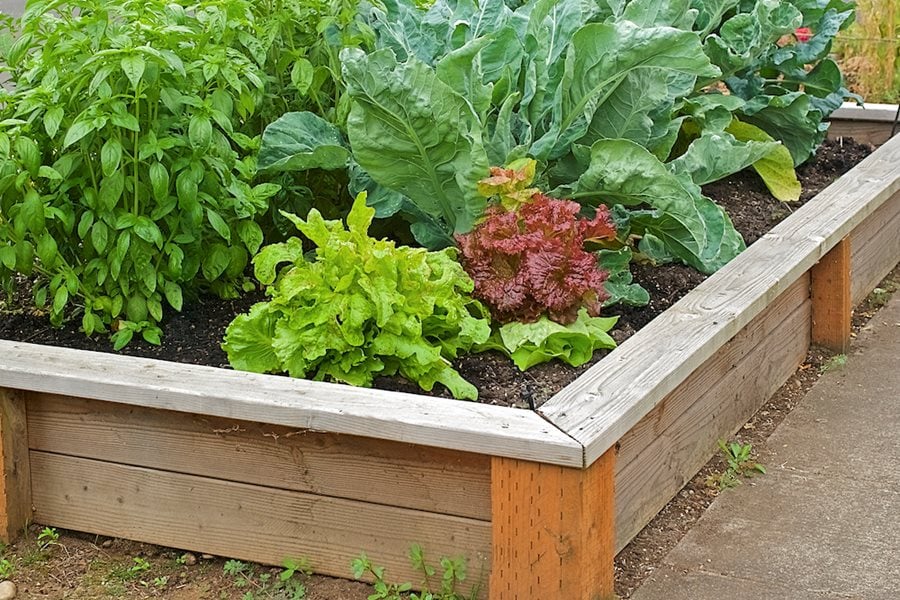
Vegetable gardening in the desert? Raised beds make it possible! They’ll need water, of course, but you can water as needed by hand and not bother with irrigation. These raised beds provide a lush array of delicious greens and provide a verdant oasis within this enclosed, somewhat shady garden mostly made with gravel and stone.
Pergolas

A pergola is an attractive way to have some shade in your garden. Most pergolas are built of lumber but can also be constructed of metal, bamboo, deadfall wood or driftwood. A pergola makes for a pleasant outdoor seating area and also gives structure to a patio or other open space. For desert climates you will want to choose drought tolerant vines such as crossvine, Carolina jessamine, pink trumpet vine, or a Lady Banks’ rose.
Fire Features
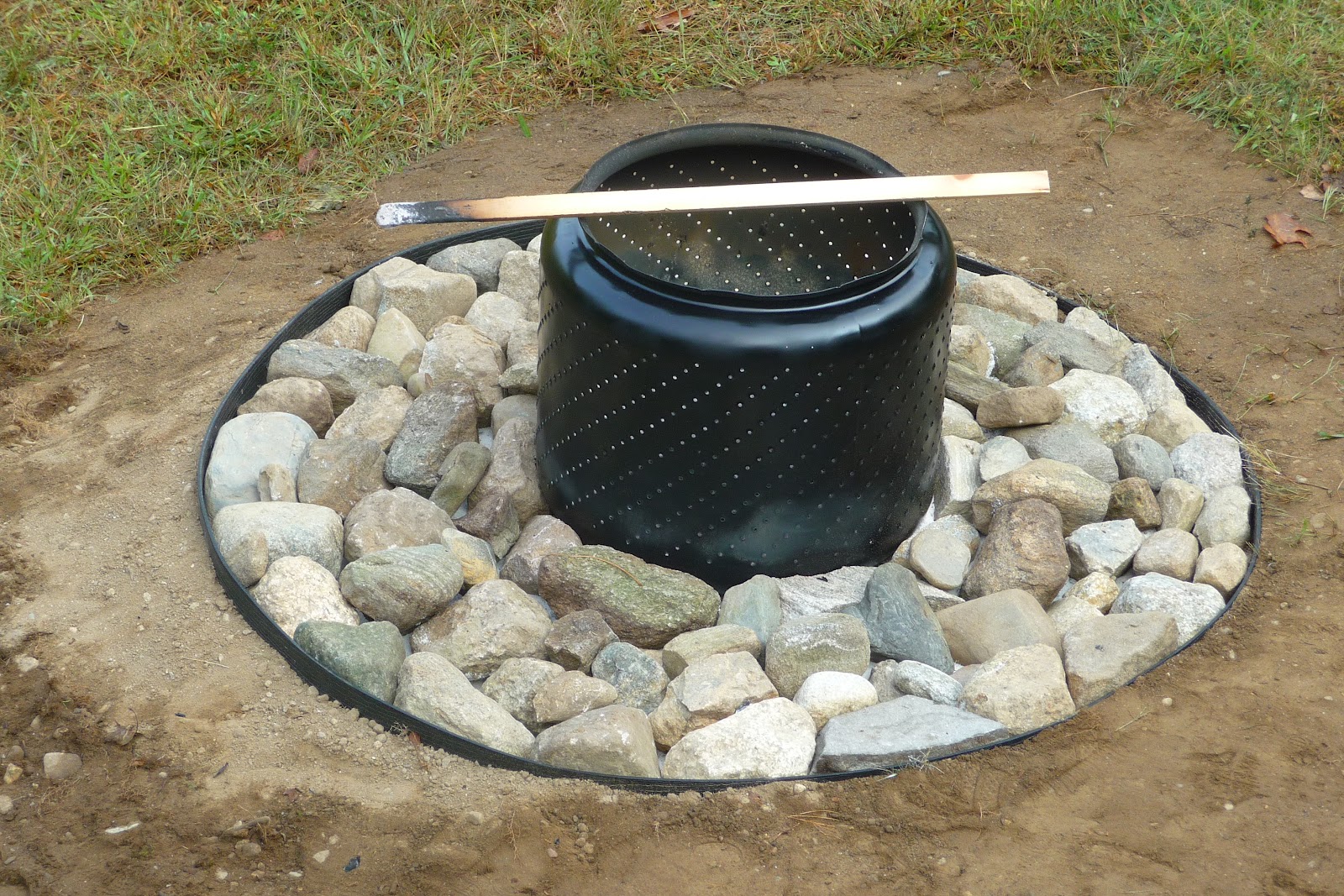
A firepit or fire dish is nice to have when the temperatures dip on a cool evening in the desert. A firepit is a fair bit of work and a more permanent fixture, but there are many options for portable fire dishes these days. Some use wood, while others like this stone fire bowl use propane, which some prefer for a cleaner heat source.
Yucca

Though they only flower every few years, yucca has striking spiky foliage and comes in a variety of sizes and colors, making them a good choice for desert landscaping. Variegated varieties like the gold and green ‘Color Guard’ will add plenty of pizzazz to the desert garden.
Use the Landscape

If your desert landscape includes large boulders or sloping hills, use them in your design. Often the most dynamic desert garden designs arise from the land and are inspired by the immediate surroundings. Use found objects like rocks and desert driftwood for edging or sculptural accents.

Making The Dream Reality
Everyone has a dream they want to come true in life. Whether it’s having the Ultimate job, living where you’ve always wanted, starting a family or a combination of all these, our aspirations motivate us to pursue these passions and interests. But reaching your dreams starts by setting goals for yourself and having the tenacity and initiative to achieve them.
© 2025 All Rights Reserved.
